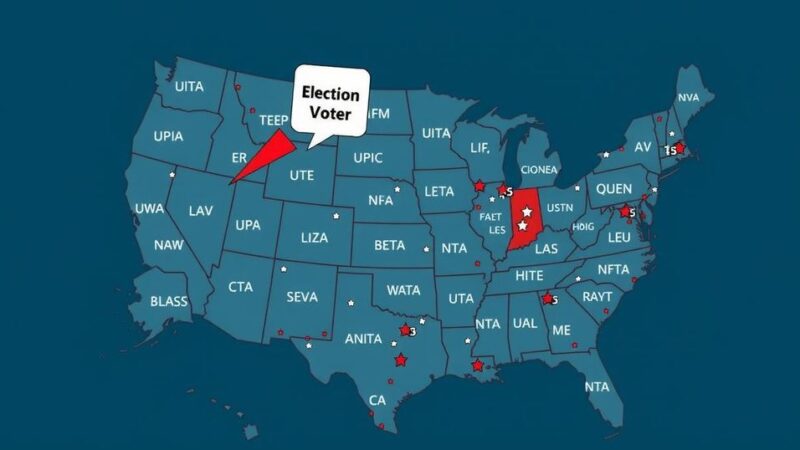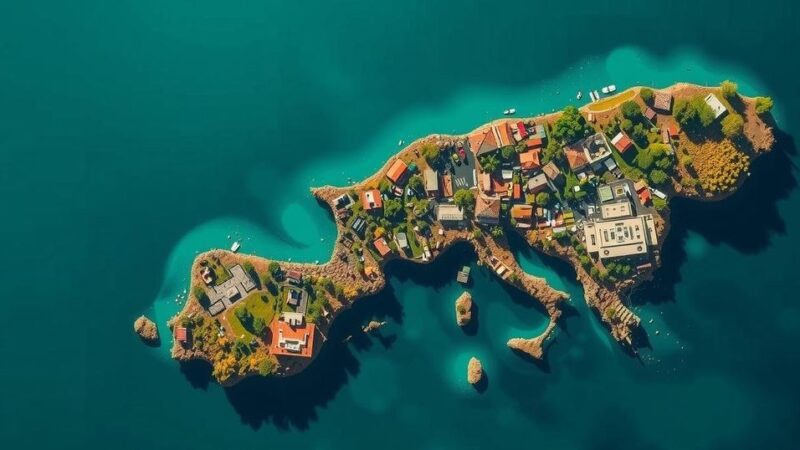Tunisia’s presidential election, occurring on Sunday, marks the first since the regime of President Kais Saied, who has faced considerable criticism for human rights violations and the concentration of power. The election is viewed by many as preordained in favor of Saied, amid a backdrop of political disillusionment and diminished civil liberties. While previously viewed as a democratic success story following the Arab Spring, Tunisia now faces significant challenges, including a fragmented political landscape, a compromised judiciary, and curtailed press freedoms that threaten the integrity of the electoral process.
The forthcoming presidential election in Tunisia, set for Sunday, represents a pivotal moment in the country’s political history. This election will be the first since President Kais Saied assumed the presidency as an independent candidate in 2019 and subsequently consolidated his power following a controversial “self-coup” in July 2021. During his presidency, he dismissed the parliament, removed the previous prime minister, and established unilateral control over executive power. The era of Saied’s governance has seen a notable decline in civil liberties, freedom of speech, and an alarming rise in arbitrary detentions targeting critics and opponents of his regime. Despite these trends, widespread public disillusionment with traditional political parties suggests that Saied is likely to secure a second term in an election criticized by observers as having been preemptively manipulated to favor his re-election. Historically, Tunisia was viewed as a beacon of democratic progress following the 2011 uprisings, dubbed the Jasmine Revolution, which successfully ousted the long-standing dictator Zine El Abidine Ben Ali. This revolution sparked significant public engagement and led to the establishment of a civil society that actively participated in shaping the democratic landscape. Even the tragic assassinations of prominent politicians in 2013 did not deter the public’s commitment to democratic ideals, as civil organizations intervened and were globally recognized with the Nobel Peace Prize in 2015 for their role in maintaining parliamentary democracy. However, Tunisia’s democratic progress has been marred by instability, including the advent of nine differing governments and significant social unrest fueled by economic decline and pervasive unemployment. The political climate prior to Saied’s coup was fraught, characterized by chaotic parliamentary debates and widespread public dissatisfaction with the ruling party, Ennahdha. Despite the tumultuous political landscape, Tunisia managed to enact significant legislation aimed at combating gender-based violence and racism. Unfortunately, the current electoral environment is less promising, as many candidates have either been imprisoned or rejected by the electoral commission, culminating in a perception of a compromised electoral process. The Judiciary has also become increasingly politicized under Saied, further undermining the independence needed to ensure free and fair elections. Furthermore, press freedom has significantly deteriorated under Saied’s administration, with numerous journalists and critics facing legal repercussions for their outspoken criticism. The media landscape has devolved from a vibrant political discourse to a more restrictive and pro-regime platform, stifling dissent and robust debate. While protests have occurred in response to Saied’s methods, they have lacked the scale and support of past movements, reflecting a fragmented civil society unable to unite against authoritarian measures. The recent revitalization of protests indicates a glimmer of resistance against perceived electoral fraud; nevertheless, these demonstrations have yet to gain the momentum necessary to instigate substantial change.
In the wake of the Arab Spring, Tunisia emerged as a symbol of hope for democratic reform. The Jasmine Revolution of 2011 was pivotal in overthrowing the authoritarian regime, leading to the establishment of a constitutional democracy. The ensuing years featured both progressive legislation and troubling political challenges, including instability and accusations of corruption among political parties. President Kais Saied’s ascendant rule initiated significant regressions in civil liberties and democratic processes, prompting widespread concerns about Tunisia’s political future and electoral integrity. The current presidential election serves as a critical juncture, reflecting the tension between authoritarianism and civil rights that continues to affect the nation.
The upcoming presidential election in Tunisia stands as a critical inflection point for the country. Under President Kais Saied’s leadership, the nation has experienced a troubling decline in civil liberties and democratic processes. Despite several notable achievements in legislation post-revolution, including advancements in gender and racial rights, the credibility of the electoral process has been severely undermined. The political landscape reflects a diverse array of challenges, including an absent judiciary oversight, limited candidate presence, and suppression of dissent. As Tunisia approaches this decisive election, its citizens grapple with the repercussions of Saied’s consolidation of power and the uncertain future of democracy in their nation.
Original Source: www.aljazeera.com






